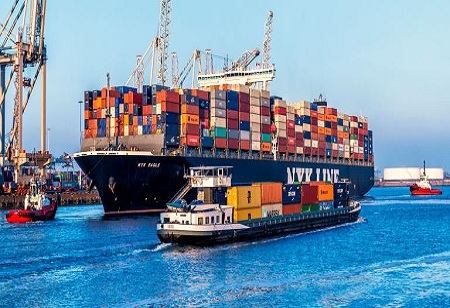
China-Canada trade breaks record, as imports hit $100bn

 As per Statistics Canada, trade between China and Canada reached new highs in 2022, with imports surpassing $100 billion for the first time.
As per Statistics Canada, trade between China and Canada reached new highs in 2022, with imports surpassing $100 billion for the first time.
According to economists and others, businesses are looking past the two countries' political difficulties as demand rises and established supply lines reassert themselves in a post-pandemic world.
James Brander, an economics professor at the University of British Columbia's Sauder School of Business, corporations would not prioritise politics in the absence of government laws dictating otherwise, such as those currently banning commerce with Russia.
"Of course, there are conflicts. But, unless there is an express policy, economic or trade flows, and economic activity in general, are not much affected by political tensions "Brander stated.
Canada imported a record $100,027,968,000 worth of products from China last year, up 16% from $86 billion in 2021.
Consumer products were the largest category of imports in 2022, costing $31 billion, followed by electronic and electrical equipment, at $28 billion.
According to the data, Canadian exports to China set a new record of $27.9 billion, recovering from a fall caused by the arrest of Chinese Huawei executive Meng Wanzhou in 2018 and Beijing's incarceration of Canadians Michael Spavor and Michael Kovrig.
China suspended a three-year embargo on Canadian canola last year, following the arrest of Meng, who has since returned to China.
Nonetheless, tensions between Ottawa and Beijing remain high in the wake of allegations of Chinese meddling in Canadian elections and government confirmation of Chinese spying operations.
Anastasia Ufimtseva, programme manager at the Asia Pacific Foundation of Canada, while economics and politics are "extremely connected," it may take a long time for them to align.
In the interim, she said, businesses will follow global trade trends and seek cost-effective solutions.
"Potentially in the future, we might observe the changes in trade, they might trickle down, but we still need to be cautious about all the factors that businesses take into account when they form the decision."
Ufimtseva, it is difficult for firms to find alternatives to China, the world's second-largest economy.
"Despite a lot of countries saying that post-pandemic, we want to establish alternative supply chain structure, it's costly and difficult to switch if your business was established, you have your suppliers. It will take such a long time to find alternatives to build that infrastructure," said Ufimtseva.
She stated that after pandemic disruptions, established supply systems had stabilised.
Manufacturing supply networks, according to Daniel Trefler, an economist at the University of Toronto, are difficult to relocate.
"Of course, that's extremely difficult to do," said Trefler. "It's impossible to do in a short period of two, three, four years."
Last week, China's consulate in Vancouver dismissed a report in the Globe and Mail newspaper alleging efforts to eliminate candidates deemed unfavourable to Beijing. According to the consulate, the report "smeared and discredited" China.
Nevertheless, the Defence Department and the Canadian Armed Forces stated last week that they were aware of recent Chinese efforts to conduct surveillance activities in Canadian airspace and waterways.

